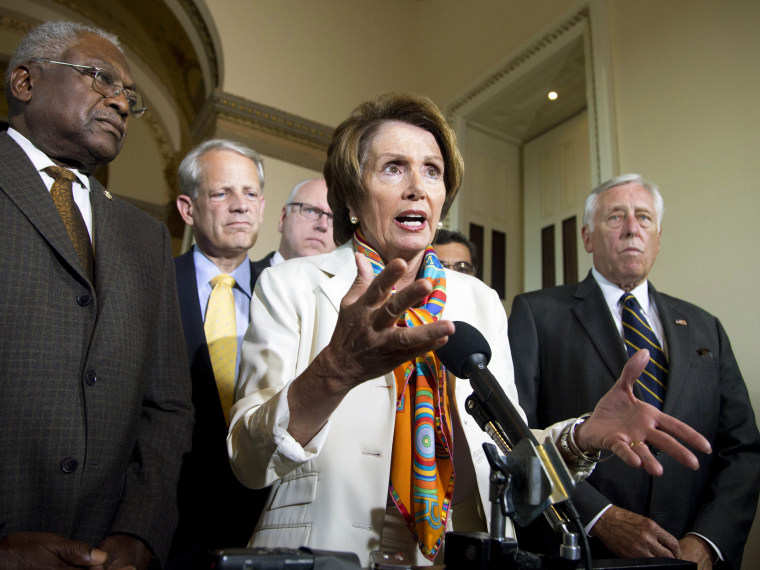The debate over the international nuclear agreement with Iran may be complex, but as a political matter on Capitol Hill, the arithmetic couldn't be simpler: if congressional Democrats back the diplomatic solution, the policy will take effect. Republicans, for reasons they're struggling to explain, may be enraged by the deal, but they can't kill it without help from Democratic lawmakers.
And with that in mind, the recent news for the right has been discouraging. Three prominent Democratic senators -- California's Barbara Boxer, Virginia's Tim Kaine, and Florida's Bill Nelson --
announced their support for the agreement yesterday. This morning, they were joined by Chris Murphy (D-Conn.). A variety of House Dems, most notably Rep.
Adam Schiff (D-Calif.), the top Democrat on the House Intelligence Committee, have done the same.
Yesterday, however,
Politico reported on an exception to the broader trend.
New York Rep. Steve Israel said Tuesday that he would oppose the nonproliferation deal at the center of President Barack Obama's foreign policy agenda when it comes up for a congressional vote in September -- the most high profile Democrat in the House to do so yet. Israel, who also chairs House Democrats' messaging arm, said he would also work to oppose the deal -- putting him at odds with Minority Leader Nancy Pelosi (D-Calif.), traditionally a close ally, who is personally lobbying members to support the Iran deal.
It's a setback for the White House and proponents of the international agreement, but it wasn't too big of a surprise -- it's long been assumed that Steve Israel would side with Republicans in opposition to the deal.
And while it's true that the New York Democrat has many allies on Capitol Hill, if there's a fight among House Dems between Nancy Pelosi and Steve Israel over whether to partner with far-right Republicans to scuttle a diplomatic agreement reached by President Obama, let's just say I wouldn't bet against the former Speaker.
As the process unfolds, the number to keep in mind is 44. Congress will pass a bill to kill the deal; the president will veto it; and Republicans will look for a two-thirds majority to override that veto. There are 188 Democrats in the House, and if 44 of them join with Republicans, they'll have the votes to derail the agreement whether the White House likes it or not. (In the Senate, there are 46 Democrats, 13 of which would have to partner with the GOP to override.)
President Barack Obama is depicting a looming congressional vote on the Iran nuclear deal as the nation's most consequential foreign policy debate since the authorization of the Iraq war, a now unpopular decision that still reverberates through American politics. In a bid to discredit criticism of the deal, Obama will also argue in a speech Wednesday at American University that the politicians who supported the Iraq war now oppose the diplomatic deal with Iran.
The speech is scheduled to start around 11:20 a.m. eastern, and rumor has it, this is going to be a good one.
As for Capitol Hill, also note that ambassadors to the United States from the P5+1 nations -- England, France, Russia, China, and Germany -- met yesterday with roughly 30 senators to discuss the deal, and according to the Huffington Post's
report, their presentation "proved surprisingly convincing."
Apparently, the ambassadors made it abundantly clear to senators that the international sanctions against Iran were intended to get Iran to the negotiating table. If American lawmakers kill the global agreement, the sanctions break down, which helps Iran's economy, and Iran's nuclear program kicks into high gear, which threatens regional stability.
Kaine, Boxer, and Nelson endorsed the deal a few hours later.
